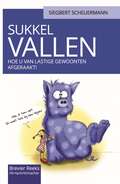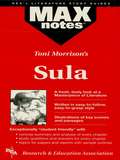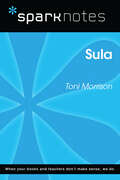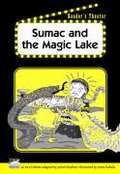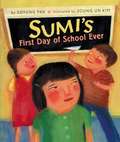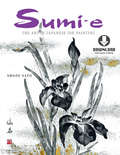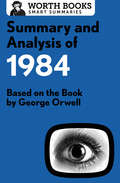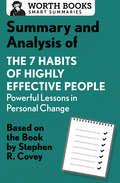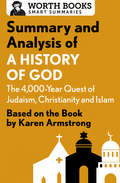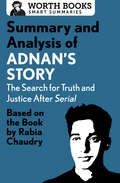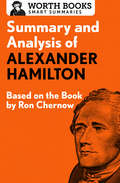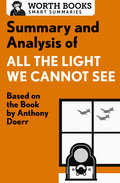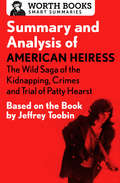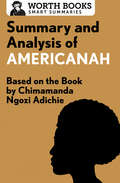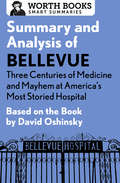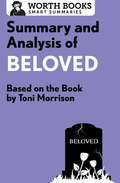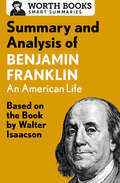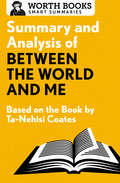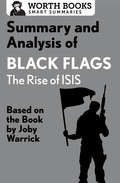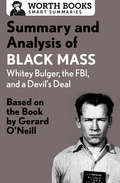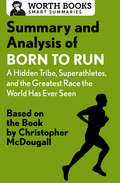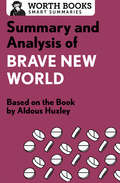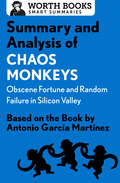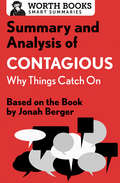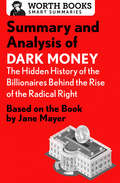- Table View
- List View
Sukkelvallen: hoe u van lastige gewoonten af geraakt.
by Siegbert ScheuermannBoekbeschrijving. Dit boek houdt u een humoristische spiegel voor, waarmee u beter uw gewoonten en aangeboren gedragspatronen kan herkennen. Welke daarvan verminderen uw levenskwaliteit en hoe kan u hier van af geraken ? U wil bvb. regelmatig sporten, gewicht afvallen of ophouden met roken, maar uw brein verzint telkens weer redenen om ’s morgens toch wat langer te blijven liggen, dat kleine stukje chocolade als een uitzondering te beschouwen of uw carrière als niet-roker voor u uit te schuiven ? Ten laatste vanaf veertig zijn wij niet alleen voor ons gewicht, maar ook voor ons uiterlijk en onze houding verantwoordelijk. Gewoonten nestelen zich in ons denken, onze relaties, gezichtsuitdrukkingen en lichaamsvormen. De eerste stappen om zich te bevrijden : 1ste stap : een bestand opmaken in de zoo van onze “gewoontediertjes”. 2de stap : gewoonten en gedragspatronen analyseren. 3de stap : hoe vervangt u vervelende gewoonten in positieve ? Vaststellingen : Ons brein is dikwijls een uitstekende rechtvaardigingsmachine, zodat alles zijn vertrouwde “gang” kan gaan. We moeten niet proberen onze innerlijke demonen te verslaan maar hen eerder uitnodigen ten dans en met hen rondjes draaien. Bevrijd u van uw valstrikken, van naïviteit, incompetentie, onwetendheid, inconsequentie en schadelijke identificaties. Verheug u op uren leesplezier, zij zullen u ten goede komen ! De inhoud is ontstaan op basis van persoonlijke ervaringen en het houden van gedrags- en communicatietraining gedurende 25 jaar met duizenden deelnemers. Aan de basis liggen de artikelen van de auteur verschenen in de blog : www.hirnschrittmacher.eu
Sula (MAXNotes Literature Guides)
by Anita Price DavisREA's MAXnotes for Toni Morrison's Sula MAXnotes offer a fresh look at masterpieces of literature, presented in a lively and interesting fashion. Written by literary experts who currently teach the subject, MAXnotes will enhance your understanding and enjoyment of the work. MAXnotes are designed to stimulate independent thought about the literary work by raising various issues and thought-provoking ideas and questions. MAXnotes cover the essentials of what one should know about each work, including an overall summary, character lists, an explanation and discussion of the plot, the work's historical context, illustrations to convey the mood of the work, and a biography of the author. Each section of the work is individually summarized and analyzed, and has study questions and answers.
Sula (SparkNotes Literature Guide Series)
by SparkNotesSula (SparkNotes Literature Guide) by Toni Morrison Making the reading experience fun! Created by Harvard students for students everywhere, SparkNotes is a new breed of study guide: smarter, better, faster. Geared to what today's students need to know, SparkNotes provides: *Chapter-by-chapter analysis *Explanations of key themes, motifs, and symbols *A review quiz and essay topicsLively and accessible, these guides are perfect for late-night studying and writing papers
Sumac and the Magic Lake
by Anne Flounders Anita Dufalla Jackie GlasthalPerform this Inca folktale about an emperor who offers a reward to anyone who can bring water back from a far-away magic lake.
Sumi's First Day of School Ever
by Soyung PakFrom the author of the Ezra Jack Keats Award winner "Dear Juno" comes this thoughtful picture book about a young Korean girl on her first day of school. It can be tough when you are different and at a new school. By the time Sumi finishes her first day of school, she decides that school is not as lonely, scary, or mean as she had thought.
Sumi-e
by Shozo SatoIn this eagerly awaited treasury, renowned Japanese master Shozo Sato offers his own personal teaching on the beautiful art of sumi-e. Sumi-e: The Art of Japanese Ink Painting provides step-by-step, photo-by-photo instructions to guide learners in the correct form, motions and techniques of Japanese sumi-e painting. <P><P> Featuring gorgeous images and practical advice, it includes guided instructions for 35 different paintings. From waterfalls to bamboo, learners paint their way to understanding sumi-e-a style of painting that is characteristically Asian and has been practiced for well over 1,000 years. Although it's sometimes confused with calligraphy, as the tools used are the same, sumi-e instead tries to capture the essence of an object or scene in the fewest possible strokes. <P> This all-in-one resource also provides a timeline of brush painting history, a glossary of terms, a guide to sources and an index-making it a tool to use and treasure, for amateurs and professionals alike. This sumi-e introduction is ideal for anyone with a love of Japanese art or the desire to learn to paint in a classic Asian style.
Summary and Analysis of 1984: Based on the Book by George Orwell (Smart Summaries)
by Worth BooksSo much to read, so little time? This brief overview of 1984 tells you what you need to know—before or after you read George Orwell&’s book. Crafted and edited with care, Worth Books set the standard for quality and give you the tools you need to be a well-informed reader. This short summary and analysis of 1984 includes: Historical contextChapter-by-chapter overviewsCharacter analysisImportant quotesFascinating triviaGlossary of termsSupporting material to enhance your understanding of the original work About 1984 by George Orwell: George Orwell&’s classic novel 1984 is a cautionary tale about a dystopian society under the crushing and watchful eye of a tyrannical regime led by Big Brother. The dark story revolves around Winston Smith, an everyman who is tired of the government&’s lies and relentless persecution of people who dare think for themselves. He manages to find the strength to stand up to a totalitarian system and, in the process, finds love and affection in a world where both have been deemed obsolete. Originally published in 1949, Orwell&’s 1984 is a masterpiece of modern fiction and one of the most enduring and influential books of the twentieth century. The summary and analysis in this ebook are intended to complement your reading experience and bring you closer to a great work of fiction.
Summary and Analysis of 7 Habits of Highly Effective People: Based on the Book by Steven R. Covey (Smart Summaries)
by Worth BooksSo much to read, so little time? This brief overview of The 7 Habits of Highly Effective People tells you what you need to know—before or after you read Stephen Covey&’s book. Crafted and edited with care, Worth Books set the standard for quality and give you the tools you need to be a well-informed reader. This short summary and analysis of The 7 Habits of Highly Effective People includes: Historical contextChapter-by-chapter overviewsProfiles of the main charactersDetailed timeline of key eventsImportant quotesFascinating triviaGlossary of termsSupporting material to enhance your understanding of the original workAbout The 7 Habits of Highly Effective People by Stephen Covey: One of the most popular and enduring works of personal-growth literature, international bestseller The 7 Habits of Highly Effective People offers life-changing insights. More than a book about business management, The 7 Habits of Highly Effective People takes readers through a tiered process of change that begins from the inside and moves outward. Stephen Covey inspires readers to reexamine their core values, discover their personal mission, and interact in more meaningful ways. Covey provides strategies for personal effectiveness that have helped millions of people around the world live more effective, fulfilling lives. The summary and analysis in this ebook are intended to complement your reading experience and bring you closer to a great work of nonfiction.
Summary and Analysis of A History of God: Based on the Book by Karen Armstrong (Smart Summaries)
by Worth BooksSo much to read, so little time? This brief overview of A History of God tells you what you need to know—before or after you read Karen Armstrong&’s book. Crafted and edited with care, Worth Books set the standard for quality and give you the tools you need to be a well-informed reader. This short summary and analysis of A History of God by Karen Armstrong includes: Historical contextChapter-by-chapter summariesDetailed timeline of important eventsImportant quotesFascinating triviaSupporting material to enhance your understanding of the original work About A History of God by Karen Armstrong: A History of God is a rich and comprehensive account of the concept of God across thousands of years of human history. Karen Armstrong, a former nun, focuses on Judaism, Christianity, and Islam, with insights into the work of Western history&’s great theologians and philosophers. Can humanity persist without some idea of God? Far from moving into an era of pure atheism, Armstrong believes that God as a construct is more crucial now than ever. God is not &“dead,&” God has not abandoned us, God merely shape-shifts to adapt to new contexts, whether that context is medieval agrarianism, nineteenth-century romanticism, or twenty-first-century post-modern techno-urbanism. Armstrong&’s in-depth examination of monotheism provides a foundation for the curious novice while not holding back on academic concepts and obscure but fascinating historical accounts. The summary and analysis in this ebook are intended to complement your reading experience and bring you closer to a great work of nonfiction.
Summary and Analysis of Adnan's Story: Based on the Book by Rabia Chaudry
by Worth BooksSo much to read, so little time? This brief overview of Adnan's Story tells you what you need to know--before or after you read Rabia Chaudry's book. Crafted and edited with care, Worth Books set the standard for quality and give you the tools you need to be a well-informed reader. This short summary and analysis of Adnan's Story by Rabia Chaudry includes: Historical contextChapter-by-chapter summariesDetailed timeline of key eventsProfiles of the main charactersImportant quotesFascinating triviaGlossary of termsSupporting material to enhance your understanding of the original work About Adnan's Story by Rabia Chaudry: By listening to the wildly popular, award-winning podcast Serial, readers may be familiar with the case against Adnan Syed, alleged to have murdered his ex-girlfriend Hae Min Lee in 1999. But Serial didn't tell the whole story. In the New York Times bestseller Adnan's Story, author, lawyer, and Syed family friend Rabia Chaudry presents compelling new information, dismantling the state's case against Adnan Syed, one piece of evidence at a time. The summary and analysis in this ebook are intended to complement your reading experience and bring you closer to a great work of nonfiction.
Summary and Analysis of Alexander Hamilton: Based on the Book by Ron Chernow
by Worth BooksSo much to read, so little time? This brief overview of Alexander Hamilton tells you what you need to know--before or after you read Ron Chernow's book. Crafted and edited with care, Worth Books set the standard for quality and give you the tools you need to be a well-informed reader. This short summary and analysis of Alexander Hamilton by Ron Chernow includes: Historical contextChapter-by-chapter summariesDetailed timeline of key eventsImportant quotesFascinating triviaGlossary of termsSupporting material to enhance your understanding of the original work About Alexander Hamilton by Ron Chernow: Ron Chernow's New York Times-bestselling biography of Alexander Hamilton sets the record straight on the often-misunderstood founding father. Beginning with a thoroughly researched investigation of Hamilton's controversial origins, the book takes an immersive look at the man who authored the Federalist Papers, fought in the Revolutionary War, crafted the nation's financial system, and served as George Washington's right-hand man before being killed in an infamous duel with Aaron Burr. More than a portrait of one man, Alexander Hamilton is the story of America's birth--and the inspiration for Lin-Manuel Miranda's Pulitzer Prize-winning Broadway musical. The summary and analysis in this ebook are intended to complement your reading experience and bring you closer to a great work of nonfiction.
Summary and Analysis of All the Light We Cannot See: Based on the Book by Anthony Doerr (Smart Summaries)
by Worth BooksSo much to read, so little time? This brief overview of All the Light We Cannot See tells you what you need to know—before or after you read Anthony Doerr&’s book. Crafted and edited with care, Worth Books set the standard for quality and give you the tools you need to be a well-informed reader. This short summary and analysis of All the Light We Cannot See includes: Historical contextChapter-by-chapter overviewsProfiles of the main charactersThemes and symbolsImportant quotesFascinating triviaGlossary of termsSupporting material to enhance your understanding of the original work About All the Light We Cannot See by Anthony Doerr: Anthony Doerr&’s Pulitzer Prize–winning novel is a beautifully crafted story about the intersection of two very different lives: A German boy with a knack for radios and a blind girl in occupied France are somehow united as Europe is plunges into World War II. An ambitious and symbolic tale spanning eighty years, All The Light We Cannot See illiminates how goodness and hope can be found even in the darkest of times. The summary and analysis in this ebook are intended to complement your reading experience and bring you closer to a great work of fiction.
Summary and Analysis of American Heiress: Based on the Book by Jeffrey Toobin
by Worth BooksSo much to read, so little time? This brief overview of American Heiress tells you what you need to know--before or after you read Jeffrey Toobin's book. Crafted and edited with care, Worth Books set the standard for quality and give you the tools you need to be a well-informed reader. This short summary and analysis of American Heiress by Jeffrey Toobin includes: Historical contextChapter-by-chapter summariesDetailed timeline of key eventsProfiles of the main charactersImportant quotesFascinating triviaGlossary of termsSupporting material to enhance your understanding of the original work About American Heiress by Jeffrey Toobin: Bestselling author Jeffrey Toobin's American Heiress is a thorough true crime account of the kidnapping and trial of Patty Hearst, whose sensational journey gripped the nation and defined a tumultuous period in American history. On February 4, 1974, Patricia Hearst--the heiress to the Hearst family fortune--was abducted by a group of left-wing revolutionaries called the Symbionese Liberation Army (SLA). What started as a media sensation turned into a circus when a recording was released in which Patty claimed she was joining the movement and her new name was Tania. Set against the backdrop of an already turbulent era, and based on hundreds of interviews and never-before-seen documents, American Heiress is a revelatory look at one of the most famous abductions of the twentieth century. The summary and analysis in this ebook are intended to complement your reading experience and bring you closer to a great work of nonfiction.
Summary and Analysis of Americanah: Based on the Book by Chimamanda Ngozi Adichie (Smart Summaries)
by Worth BooksSo much to read, so little time? This brief overview of Americanah tells you what you need to know before or after you read Chimamanda Ngozi Adichie&’s book. Crafted and edited with care, Worth Books set the standard for quality and give you the tools you need to be a well-informed reader. This short summary of Americanah by Chimamanda Ngozi Adichie includes: Chapter-by-chapter overviewProfiles of the main charactersThemes and symbolsA note on the author&’s styleImportant quotesFascinating triviaSupporting material to enhance your understanding of the original work About Chimamanda Ngozi Adichie&’s Americanah: Spanning more than two decades and three countries, Chimamanda Ngozi Adichie&’s critically acclaimed novel is an astonishingly frank and multilayered work of literature that shines a harsh light on issues of race, class, feminism, and identity. Told from the perspective of two young Nigerians living abroad, Americanah is part love story and part unapologetic commentary on society and the immigrant experience. Honest, witty, revealing, and inspirational, Americanah is a unique and bold examination of what it means to be black in America. The summary and analysis in this ebook are intended to complement your reading experience and bring you closer to a great work of fiction.
Summary and Analysis of Bellevue: Based on the Book by David Oshinsky (Smart Summaries)
by Worth BooksSo much to read, so little time? This brief overview of Bellevue tells you what you need to know—before or after you read David Oshinsky&’s book. Crafted and edited with care, Worth Books set the standard for quality and give you the tools you need to be a well-informed reader. This short summary and analysis of Bellevue includes: Historical contextChapter-by-chapter overviewsCharacter profilesDetailed timeline of key eventsImportant quotes and analysisFascinating triviaGlossary of termsSupporting material to enhance your understanding of the original workAbout Bellevue: Three Centuries of Medicine and Mayhem at America&’s Most Storied Hospital by David Oshinsky: Pulitzer Prize–winning historian David Oshinsky provides a comprehensive account of New York City&’s famous Bellevue Hospital, from its early inception as a poorhouse infirmary to its most recent struggles and triumphs, including a dramatic evacuation during Hurricane Sandy and the successful treatment of an Ebola patient. In the centuries between, the hospital contends with epidemics ranging from yellow fever to AIDS, a meddling journalist named Nellie Bly, and the tragic murder of a doctor on hospital grounds by a mental patient. Some of Bellevue&’s finest staff are highlighted, including two doctors who operated on American presidents and two others who virtually invented forensic science. The history of Bellevue is the history of New York City, in all of its complicated and controversial glory, and its mission to serve the underprivileged is a fulfillment of the duty inscribed on the Statue of Liberty: &“Give me your tired, your poor, your huddled masses.&” The summary and analysis in this ebook are intended to complement your reading experience and bring you closer to a great work of nonfiction.
Summary and Analysis of Beloved: Based on the Book by Toni Morrison
by Worth BooksSo much to read, so little time? This brief overview of Beloved tells you what you need to know—before or after you read Toni Morrison’s book. Crafted and edited with care, Worth Books set the standard for quality and give you the tools you need to be a well-informed reader. This short summary and analysis of Beloved by Toni Morrison includes: Historical contextChapter-by-chapter summariesCharacter analysisThemes and symbolsFascinating triviaImportant quotesSupporting material to enhance your understanding of the original work About Beloved by Toni Morrison: A Nobel laureate and winner of the Pulitzer Prize, Toni Morrison weaves a heartbreaking tale of legendary proportions. Set in post–Civil War Ohio, Beloved is the story of an escaped slave haunted by her past. Although Sethe is no longer enslaved, she is not yet free from her memories of the child and husband she buried, of the brutal violence on the plantation she fled, of life and of death, and of everything in between. Beautiful, unflinching, and profound, Beloved is Morrison’s crowning achievement and is one of America’s greatest novels. The summary and analysis in this ebook are intended to complement your reading experience and bring you closer to a great work of fiction.
Summary and Analysis of Benjamin Franklin: Based on the Book by Walter Isaacson
by Worth BooksSo much to read, so little time? This brief overview of Benjamin Franklin tells you what you need to know—before or after you read Walter Isaacson’s book. Crafted and edited with care, Worth Books set the standard for quality and give you the tools you need to be a well-informed reader. This short summary and analysis of Benjamin Franklin by Walter Isaacson includes: Historical contextChapter-by-chapter overviewsCharacter profilesDetailed timeline of eventsImportant quotesFascinating triviaGlossary of termsSupporting material to enhance your understanding of the original work About Benjamin Franklin: An American Life by Walter Isaacson: In his thorough examination of one of America’s Founding Fathers, biographer Walter Isaacson explores the life and times of Benjamin Franklin and his legacy as a scientist, writer, diplomat, printing mogul, and voice for the common man. Isaacson follows Franklin from young runaway teenager in Philadelphia, to the savvy statesman coordinating the Franco-American alliance during the Revolutionary War, to the wise, 80-year-old politician at the Constitutional Convention. In between, we learn about Franklin the person—his complicated relationships, his scientific curiosity and brilliant discoveries, and the civic-mindedness that caused him to found a library, a fire department, a university, and a hospital. Franklin’s principles of democracy and admiration for the middle class continue to be at the foundation of American society. The summary and analysis in this ebook are intended to complement your reading experience and bring you closer to a great work of nonfiction.
Summary and Analysis of Between the World and Me: Based on the Book by Ta-Nehisi Coates
by Worth BooksSo much to read, so little time? This brief overview of Between the World and Me tells you what you need to know--before or after you read Ta-Nehisi Coates's book. Crafted and edited with care, Worth Books set the standard for quality and give you the tools you need to be a well-informed reader. This short summary and analysis of Between the World and Me by Ta-Nehisi Coates includes: Historical contextSection-by-section summariesThemes and symbolsDetailed timeline of key eventsImportant quotesFascinating triviaGlossary of termsSupporting material to enhance your understanding of the original work About Between the World and Me by Ta-Nehisi Coates: Written in the form of a letter to his young son, Ta-Nehisi Coates's National Book Award winner, Between the World and Me, is a powerful personal essay that addresses the history of racism in America and its impact on our lives today. Using his own experiences and observations as a starting point, Coates poses questions and imparts insights about the systematic oppression of persons of color, covering topics from the dark days of slavery to growing up in Baltimore in a "black body" to all-too-common instances of police brutality and everyday discrimination. The summary and analysis in this ebook are intended to complement your reading experience and bring you closer to a great work of nonfiction.
Summary and Analysis of Black Flags: Based on the Book by Joby Warrick
by Worth BooksSo much to read, so little time? This brief overview of Black Flags: The Rise of ISIS tells you what you need to know—before or after you read Joby Warrick’s book. Crafted and edited with care, Worth Books set the standard for quality and give you the tools you need to be a well-informed reader. This short summary and analysis of Black Flags includes: Historical contextChapter-by-chapter overviewsProfiles of the main charactersDetailed timeline of key eventsImportant quotesFascinating triviaGlossary of termsSupporting material to enhance your understanding of the original work About Black Flags: The Rise of ISIS by Joby Warrick: Two-time Pulitzer Prize winner Joby Warrick has written an authoritative account of the origins and rapid ascent of the largest global terrorist organization today: the Islamic State. Drawing on hundreds of interviews with US and Middle Eastern intelligence officials, as well as two decades of experience covering global terrorism, Warrick presents portraits of the group’s leadership, including the “godfather” of ISIS, Abu Musab al-Zarqawi, and of its current leader, Abu Bakr al-Baghdadi. Warrick explains the historical context and the sectarian struggles behind the rise of the Islamic State, the missteps by US intelligence that aided it, and the heroic work by intelligence and military officials that have fought against it. His work explains the appeal of ISIS and the threat it poses to the Middle East and global peace. The summary and analysis in this ebook are intended to complement your reading experience and bring you closer to a great work of nonfiction.
Summary and Analysis of Black Mass: Based on the Book by Dick Lehr and Gerard O'Neill (Smart Summaries)
by Worth BooksSo much to read, so little time? This brief overview of Black Masstells you what you need to know—before or after you read Dick Lehr and Gerard O&’Neill&’s book. Crafted and edited with care, Worth Books set the standard for quality and give you the tools you need to be a well-informed reader. This short summary and analysis of Black Mass by Dick Lehr and Gerard O&’Neill includes:Historical contextChapter-by-chapter summariesDetailed timeline of important eventsImportant quotesFascinating triviaSupporting material to enhance your understanding of the original work About Dick Lehr and Gerard O&’Neill&’s Black Mass: The New York Times–bestselling Black Mass is a groundbreaking true crime story about the Mafia, the FBI, and the Irish Mob in between them. Journalists Dick Lehr and Gerard O&’Neill expose a decades-long partnership between FBI agent John Connolly and notorious Boston mob boss Whitey Bulger. Connolly taps childhood friend-turned–Irish mobster Bulger to be an informant. But soon enough, Bulger is the one pulling the strings, convincing Connolly to cover up his dirty deeds. This corrupt deal results in a web of crimes including racketeering, drugs, and murder, all leading to an FBI rocked by scandal when the truth comes out. Shocking and enlightening, Black Mass is an Edgar Award–winning book that magnifies the fine line between law and lawlessness. The summary and analysis in this ebook are intended to complement your reading experience and bring you closer to a great work of nonfiction.
Summary and Analysis of Born to Run: Based on the Book by Christopher McDougall
by Worth BooksSo much to read, so little time? This brief overview of Born to Run tells you what you need to know—before or after you read Christopher McDougall’s book. Crafted and edited with care, Worth Books set the standard for quality and give you the tools you need to be a well-informed reader. This short summary and analysis of Born to Run by Christopher McDougall includes: Historical contextChapter-by-chapter overviewsDetailed timeline of key eventsImportant quotesFascinating triviaGlossary of termsSupporting material to enhance your understanding of the original work About Born to Run by Christopher McDougall: Christopher McDougall’s New York Times–bestselling Born to Run brought the underground sport of distance running to the forefront of American conversation, spurring trends like barefoot running and chia seeds’ recognition as a superfood. Centering around two long-distance races, the second of which McDougall intends to run, the book is written in a distinctly Gonzo journalism–style. The author focuses on the Tarahumara, an ancient tribe of runners that lives isolated in Mexico’s Copper Canyons, but he also pulls in plenty of other characters, past and present, and explores the biological reasons we are all born to run. The summary and analysis in this ebook are intended to complement your reading experience and bring you closer to a great work of nonfiction.
Summary and Analysis of Brave New World
by Worth BooksSo much to read, so little time? This brief overview of Brave New World tells you what you need to know—before or after you read Aldous Huxley’s book. Crafted and edited with care, Worth Books set the standard for quality and give you the tools you need to be a well-informed reader. This short summary and analysis of Brave New World includes: Historical context, Chapter-by-chapter overviews, Profiles of the main characters, Themes and symbols, Important quotes, Fascinating trivia, Glossary of terms, Supporting material to enhance your understanding of the original work. About Brave New World by Aldous Huxley: Aldous Huxley’s visionary Brave New World is one of the world’s greatest dystopian novels. In a society built on conformity, stability, and pervasive “happiness,” individuals are not born, but manufactured into one of five distinct castes—from dull-witted laborers to leaders and thinkers. Even as embryos, people are conditioned and programmed not only to accept, but to enjoy their predestined lives—or is it their slavery? But what happens when a savage—a man born from an actual mother—is introduced into this perfectly ordered society? Brave New World is a masterpiece of literary satire, as appropriate today, in our world of endless, shallow distractions and ubiquitous mass media, as it was when it was first published in 1932. The summary and analysis in this ebook are intended to complement your reading experience and bring you closer to a great work of fiction.
Summary and Analysis of Chaos Monkeys: Based on the Book by Antonio García Martinez
by Worth BooksSo much to read, so little time? This brief overview of Chaos Monkeys: Obscene Fortune and Random Failure in Silicon Valley tells you what you need to know—before or after you read Antonio García Martínez’s book. Crafted and edited with care, Worth Books set the standard for quality and give you the tools you need to be a well-informed reader. This short summary and analysis of Chaos Monkeys by Antonio García Martínez includes: Historical contextChapter-by-chapter overviewsCharacter profilesImportant quotesFascinating triviaGlossary of termsSupporting material to enhance your understanding of the original workAbout Chaos Monkeys: Obscene Fortune and Random Failure in Silicon Valley by Antonio García Martínez: Chaos Monkeys is an autobiographical account of Antonio García Martínez’s time in the exploding IT start-up scene in California, and his work as Facebook’s marketing manager. He offers a scathing and hilarious analysis of the landscape of contemporary social media. Based on his own experience and observations, Martínez unpacks the problems of funding and developing new tech companies, and the even greater problems of working for a large, up-and-coming corporation run by a visionary—who isn’t necessarily in it for the money. The summary and analysis in this ebook are intended to complement your reading experience and bring you closer to a great work of nonfiction.
Summary and Analysis of Contagious: Based on the Book by Jonah Berger
by Worth BooksSo much to read, so little time? This brief overview of Contagious tells you what you need to know—before or after you read Jonah Berger’s book. Crafted and edited with care, Worth Books set the standard for quality and give you the tools you need to be a well-informed reader. This short summary and analysis of Contagious includes: Historical contextChapter-by-chapter overviewsDetailed timeline of key eventsImportant quotesFascinating triviaGlossary of termsSupporting material to enhance your understanding of the original workAbout Contagious by Jonah Berger: Contagious: Why Things Catch On examines why certain media goes viral—videos, articles, memes—and others never get shared at all. By looking at popular culture, Wharton professor Jonah Berger analyzes what makes an idea take off. Based on his own research and the insights gleaned from 15 years of studying marketing, Berger’s New York Times–bestselling book teaches readers why popular content is popular, and how they can make their own ideas and products truly contagious. The summary and analysis in this ebook are intended to complement your reading experience and bring you closer to a great work of nonfiction.
Summary and Analysis of Dark Money: Based on the Book by Jane Mayer
by Worth BooksSo much to read, so little time? This brief overview of Dark Money tells you what you need to know—before or after you read Jane Mayer’s book. Crafted and edited with care, Worth Books set the standard for quality and give you the tools you need to be a well-informed reader. This short summary and analysis of Dark Money includes: Historical contextChapter-by-chapter overviewsProfiles of the main charactersDetailed timeline of key eventsImportant quotesFascinating triviaGlossary of termsSupporting material to enhance your understanding of the original workAbout Dark Money by Jane Mayer: Jane Mayer’s Dark Money: The Hidden History of the Billionaires Behind the Rise of the Radical Right tells the fascinating and troubling story of how a small group of activist billionaires has come to exert an enormous influence on American politics. By using their wealth to gain effective control of the Republican Party, Charles and David Koch have tied it to a conservative agenda that furthers their own business interests. Drawing on five years of carefully documented research, Jane Mayer, an investigative journalist and New Yorker staff writer, covers the family history of the Koch brothers and their decades-long journey from the fringes of right-wing politics to the very center of political power. Her message offers implicit warning about how anonymous, unlimited funding threatens to turn American politics into a government run by a few. The summary and analysis in this ebook are intended to complement your reading experience and bring you closer to a great work of nonfiction.
